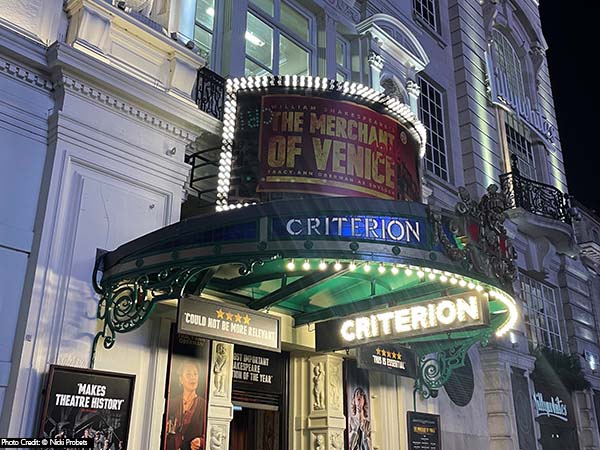Trigger Warnings
1st March 2024Trigger warnings are needed to make theatre accessible
Actor Ralph Fiennes made his point very clear earlier this month that trigger warnings in theatre are unnecessary. He said in an interview with the BBC that “the impact of theatre should be that you’re shocked, and you should be disturbed.”
He continued: “I don’t think you should be prepared for these things and when I was young, [we] never had trigger warnings for shows. I never experienced trigger warnings like: ‘Oh, by the way, in King Lear, Gloucester’s going to have his eyes pulled out.”
Stage and screen actors have agreed with him, including Doctor Who star Matt Smith who said: “That’s why we go to the theatre isn’t it? To be shocked… I worry sometimes that we’re moving towards a sort of sanitised version of everything and we’re stripping the danger and the invention and the ingenuity out of [everything]. Isn’t art meant to be dangerous?”
Even Culture Secretary Lucy Frazer is against these warnings. She said in a recent interview that theatre productions with "uncomfortable issues" do not require a trigger warning. “If you go to see Macbeth, you pretty much know before you go in that it’s going to contain uncomfortable issues. I think we should treat people who go to the theatre in an adult way.”
I do understand their views – we didn’t have warnings a while ago when we studied drama or saw theatre productions, these are a relatively new initiative. However, times have changed.
We are more open to talking about mental health, not making it feel like a taboo like it once did, and we are more understanding of the well-being of others. We should be supporting those who want to be forewarned of any sensitive subject matter and not make it into a big issue like it seems to have become.

I don’t like the word ‘trigger’ because to me that evokes a strong emotional reaction, and producers can’t predict the triggers of all their audience members. The list would be endless. The term should be ‘content warning’ as it is the performance content they are being alerted to.
I believe content warnings, just like the warnings about the use of strobe lighting or loud noises, should be available at the point of booking, not when arriving at the theatre. The content warnings don’t have to give away the whole plot or spoil the show for others, but it gives those who need transparency to make an informed decision as to whether they pay to see the show.
Theatre should be as accessible as possible to everyone. Making content warnings available doesn’t hurt anyone so if someone doesn’t need them fine, but some people do. Don’t alienate part of your audience who may have suffered trauma from visiting the theatre.
As Andrew Miller said in The Stage, “Content warnings are not spoilers - they are an access requirement.”
He wrote: “Much like ramps for some people with mobility impairments, or hearing loops for some D/deaf or hard-of-hearing people, content warnings make sure everyone is welcome in a theatre space.”

Andrew heads up the scheme, 'All In', which aims to knock down barriers within the arts to make it available and accessible to all ensuring ‘everyone’s welcome’. It’s an excellent initiative of which all theatres should take note.
In defence of trigger warnings, this piece in Arts Professional by Fiona Moon shows how the hard work of those fighting for accessibility for all within the theatre is undermined by the high-profile actors’ comments and opinions, which they have every right to have of course, but they do speak from a privileged position. A very interesting read.
Theatre takes us on a rollercoaster of emotions and we expect that, but some like to be pre-warned so they can prepare themselves.
Tracy-Ann Oberman, who is starring in The Merchant of Venice at The Criterion and against content warnings, said: “If something’s upset you in a play, go look it up, go and find out when and why it was written — why it’s there. You’re meant to feel emotions that feel uncomfortable but in the safe environment of the theatre. You’re meant to feel fear, pity, anger, upset, horror, outrage … it’s meant to be able to change you.”
I do see her point, but it isn’t always doable for some. Once something has been seen or heard it can’t be reversed or looked up. Also one can still feel all this even if we have content warnings. The warnings don’t stop us going through those emotions.

Do we all have to do our research before we book tickets? Should this information not just be made available to us when we’re looking at theatre productions?
We already have ratings on films, which are aimed at specific audiences and give brief content warnings, so we all know what to expect before we’ve even watched it. Is this the sort of thing we will start seeing at the theatre?
Theatres need to start providing the necessary content warning and other helpful information at the start of the booking process. It enables us to make that decision straight away whether the show is for us or not.
Informing us of the content when we get to the theatre is too late and it could be more triggering. Plus, we have already bought tickets which are unlikely to be refunded.
If we don’t make this information available, then we may well stop people visiting the theatre. The industry is already on its knees, so why would we add another challenge when it could be as simple as adding a few vital lines to the theatre's website and booking page?
Make theatre accessible and inclusive.